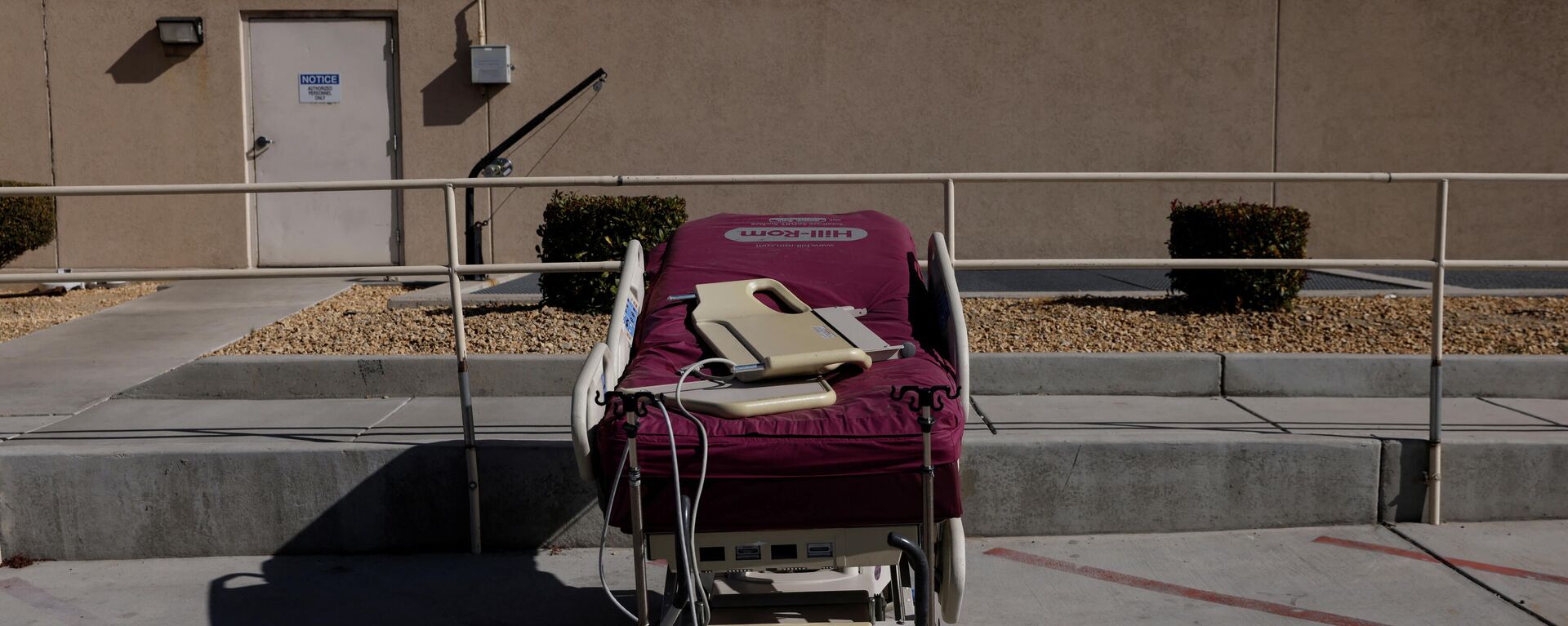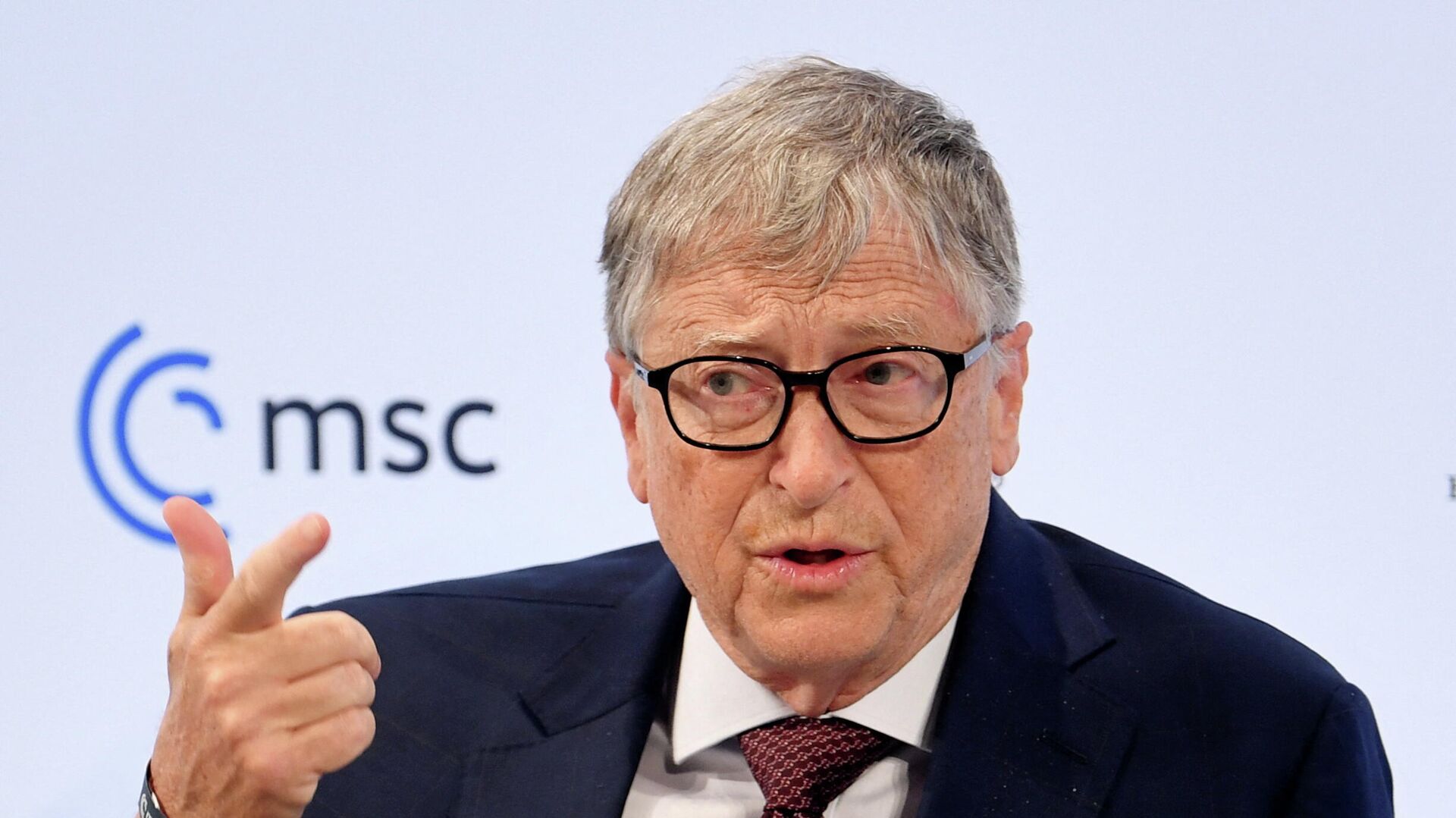https://sputnikglobe.com/20220218/gates-says-covid-19-already-less-dangerous-but-another-pandemic-is-virtually-inevitable-1093155653.html
Gates Says COVID-19 Already Less Dangerous But Another Pandemic Is Virtually Inevitable
Gates Says COVID-19 Already Less Dangerous But Another Pandemic Is Virtually Inevitable
Sputnik International
The latest scientific data from across the world showed that the worst effects of the COVID-19 pandemic have faded, as large swaths of the world population... 18.02.2022, Sputnik International
2022-02-18T21:02+0000
2022-02-18T21:02+0000
2023-02-14T12:21+0000
bill gates
world
covid-19
omicron strain
pandemic
virus
https://cdn1.img.sputnikglobe.com/img/07e6/02/12/1093156887_0:0:2450:1378_1920x0_80_0_0_eaaee395a08cb8d3dcedf74cb42e38ac.jpg
Bill Gates stated on Friday that the risk of serious disease from the novel coronavirus has "dramatically reduced" since 2020 but a new pandemic will surely take place in the future. Interestingly, a hypothetical new pandemic would likely be caused by a pathogen other than the coronavirus family. However, he noted that if investments are made now, breakthroughs in medical technology should enable the world to do a better job of combating it.But according to Gates, the current lessened severity of the disease is due to the virus itself, which generates immunity in people and has "done a better job of getting out to the world population than we have with vaccines."The founder of Microsoft and philanthropist said that it was "too late" to accomplish the World Health Organization's objective of vaccinating 70% of the world's population by the middle of this year, given that currently, at least one dose of the COVID-19 vaccine has been administered to just 61.9% of the world's population.He went on to say that the world should move faster in developing and distributing vaccines in the future and that countries should make investments now in preparation.Earlier, the WHO stated that assuming the omicron strain, which has brought the overall number of infection cases globally to over 420 million, will mark the end of the pandemic's most acute phase, is perilous.Late last month, the UN health agency described global conditions as suitable for further variants of the novel coronavirus to arise.According to CNBC, the Bill and Melinda Gates Foundation has teamed up with the Wellcome Trust in the UK to provide $300 million to the Coalition for Epidemic Preparedness Innovations, which helped develop the Covax vaccine delivery program in low- and middle-income countries. The CEPI reportedly hopes to fund $3.5 billion in order to reduce the time it takes to produce a new vaccine to 100 days.
https://sputnikglobe.com/20220216/increasing-number-of-us-health-care-workers-say-worst-of-covid-19-pandemic-over---poll-1093093790.html
Sputnik International
feedback@sputniknews.com
+74956456601
MIA „Rosiya Segodnya“
2022
News
en_EN
Sputnik International
feedback@sputniknews.com
+74956456601
MIA „Rosiya Segodnya“
Sputnik International
feedback@sputniknews.com
+74956456601
MIA „Rosiya Segodnya“
bill gates, covid-19, omicron strain, pandemic, virus
bill gates, covid-19, omicron strain, pandemic, virus
Gates Says COVID-19 Already Less Dangerous But Another Pandemic Is Virtually Inevitable
21:02 GMT 18.02.2022 (Updated: 12:21 GMT 14.02.2023) Kirill Kurevlev
Managing Editor
The latest scientific data from across the world showed that the worst effects of the COVID-19 pandemic have faded, as large swaths of the world population have developed some level of immunity since the virus emerged more than two years ago. With the current omicron variant, the severity has also decreased.
Bill Gates stated on Friday that the risk of serious disease from the novel coronavirus has "dramatically reduced" since 2020 but a new pandemic will surely take place in the future.
Interestingly, a hypothetical new pandemic would likely be caused by a pathogen other than the coronavirus family. However, he noted that if investments are made now, breakthroughs in medical technology should enable the world to do a better job of combating it.
"We’ll have another pandemic. It will be a different pathogen next time," Gates, who is a co-chair of the Bill & Melinda Gates Foundation, said at Germany's annual Munich Security Conference.
But according to Gates, the current lessened severity of the disease is due to the virus itself, which generates immunity in people and has "done a better job of getting out to the world population than we have with vaccines."
"The chance of severe disease, which is mainly associated with being elderly and having obesity or diabetes, those risks are now dramatically reduced because of that infection exposure," he explained.
The founder of Microsoft and philanthropist said that it was "too late" to accomplish the World Health Organization's objective of vaccinating 70% of the world's population by the middle of this year, given that currently, at least one dose of the COVID-19 vaccine
has been administered to just 61.9% of the world's population.
He went on to say that the world should move faster in developing and distributing vaccines in the future and that countries should make investments now in preparation.
"Next time we should try and make it, instead of two years, we should make it more like six months," he stressed, adding that standardized platforms, such as messenger RNA (mRNA) technology, will enable this. "The cost of being ready for the next pandemic is not that large. It’s not like climate change. If we’re rational, yes, the next time we’ll catch it early."
Earlier, the WHO stated that assuming the omicron strain, which has brought the overall number of infection cases globally to over 420 million, will mark the end of the pandemic's most acute phase, is perilous.

16 February 2022, 20:02 GMT
Late last month, the UN health agency described global conditions as suitable for further variants of the novel coronavirus to arise. According to
CNBC, the Bill and Melinda Gates Foundation has teamed up with the Wellcome Trust in the UK to provide $300 million to the Coalition for Epidemic Preparedness Innovations, which helped develop the Covax vaccine delivery program in low- and middle-income countries. The CEPI reportedly hopes to fund $3.5 billion in order to reduce the time it takes to produce a new vaccine to 100 days.





